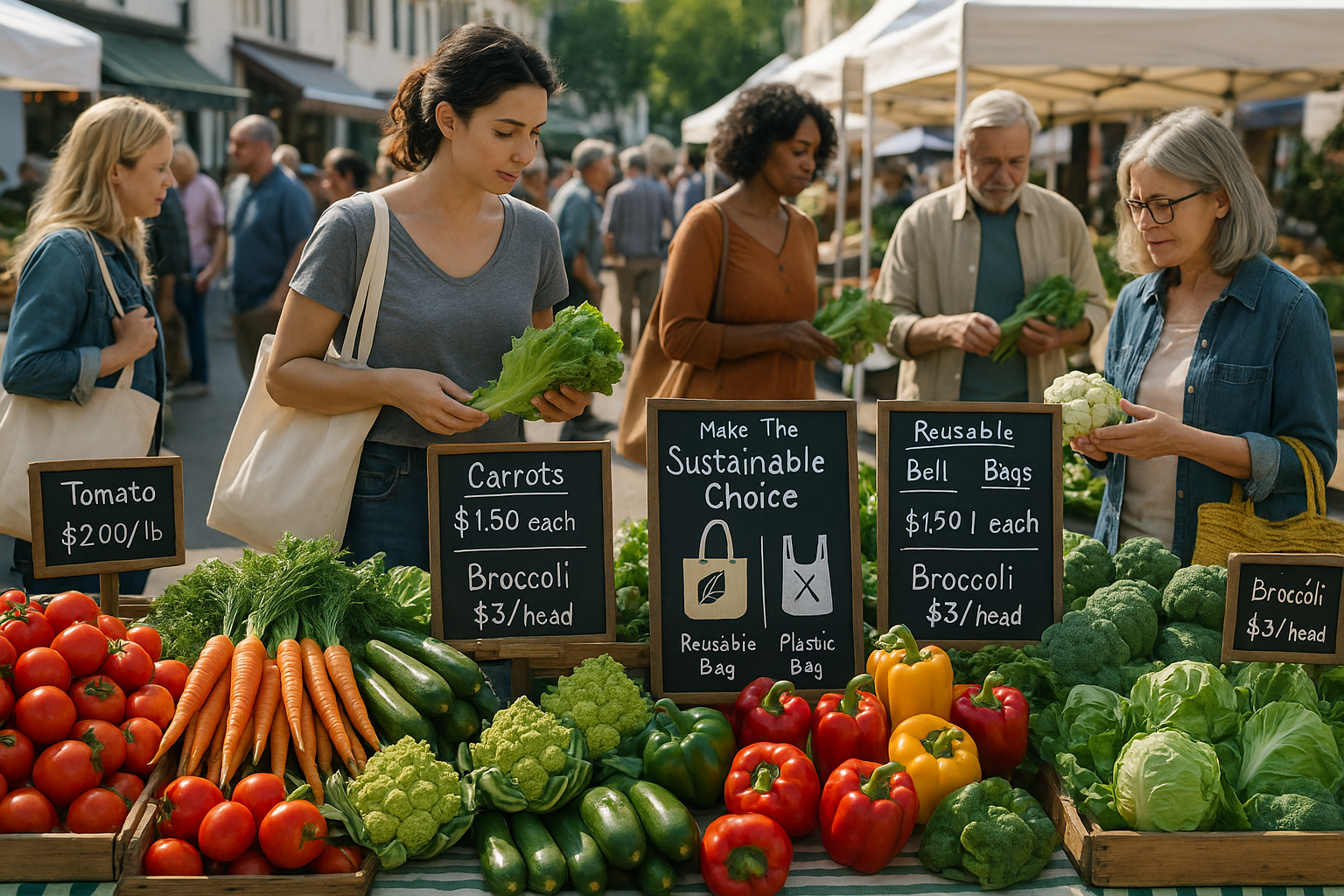Slash Your Grocery Bill With Sustainable Food Strategies
Slash your grocery bill and embrace sustainability by exploring innovative food strategies that not only save you money but also contribute to a healthier planet—browse options and discover how you can make a difference today.

Understanding Sustainable Food Strategies
Sustainable food strategies are designed to minimize environmental impact while promoting healthy eating habits and cost savings. By adopting these practices, you can significantly reduce your grocery expenses and support a more sustainable food system. These strategies include choosing local and seasonal produce, reducing food waste, and opting for plant-based meals. By making informed choices, you can enjoy fresh, nutritious food without breaking the bank.
Local and Seasonal Produce
Purchasing local and seasonal produce is a cornerstone of sustainable eating. Not only does this practice support local farmers, but it also reduces the carbon footprint associated with transporting food over long distances. Seasonal produce is often less expensive due to its abundance during certain times of the year. For instance, buying apples in the fall when they are in season can be more cost-effective than purchasing them in the spring. To find local produce options, you can visit farmers' markets or join a community-supported agriculture (CSA) program.
Reducing Food Waste
Food waste is a significant issue in many households, contributing to unnecessary expenses and environmental harm. By planning meals ahead of time and storing food properly, you can minimize waste and make the most of your grocery purchases. Consider creating a weekly meal plan and using a shopping list to avoid impulse buys. Additionally, learning how to store foods correctly can extend their shelf life and prevent spoilage. For example, storing herbs in water or keeping fruits and vegetables in the crisper drawer can help maintain freshness1.
Embracing Plant-Based Meals
Incorporating more plant-based meals into your diet can lead to substantial savings and environmental benefits. Plant-based foods, such as beans, lentils, and grains, are often more affordable than meat and dairy products. They also require fewer resources to produce, making them a more sustainable choice. You don't have to go fully vegetarian or vegan to reap these benefits; even reducing meat consumption a few days a week can make a difference. Explore plant-based recipes online to diversify your meal options and discover delicious new dishes2.
Exploring Bulk Buying and Reusable Packaging
Buying in bulk is an effective way to save money and reduce packaging waste. Items like grains, pasta, and dried legumes can often be purchased in larger quantities at a lower price per unit. Additionally, using reusable bags and containers when shopping can further decrease your environmental impact. Many stores now offer bulk sections where you can bring your own containers, allowing you to purchase only what you need and avoid excess packaging3.
Leveraging Technology for Savings
Technology can be a powerful ally in your quest to reduce grocery bills sustainably. Numerous apps and websites offer tools to help you find the best deals, plan meals, and track your pantry inventory. Apps like Too Good To Go and Flashfood connect consumers with discounted surplus food from local stores and restaurants, helping to reduce waste and save money4. By utilizing these resources, you can make informed purchasing decisions and stretch your budget further.
Incorporating these sustainable food strategies into your routine not only slashes your grocery bill but also promotes a healthier lifestyle and a cleaner environment. As you explore these options, you'll find that small changes can lead to significant benefits, both financially and environmentally. By visiting websites and exploring specialized solutions, you can continue to enhance your sustainable food journey and enjoy the rewards of a more conscious approach to eating.